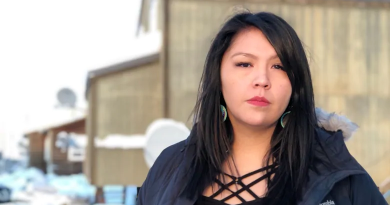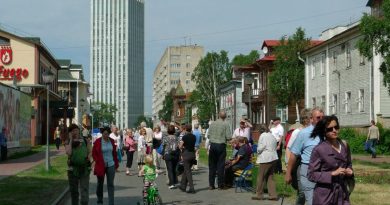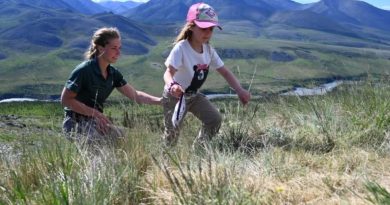Arctic Council to celebrate 25th anniversary
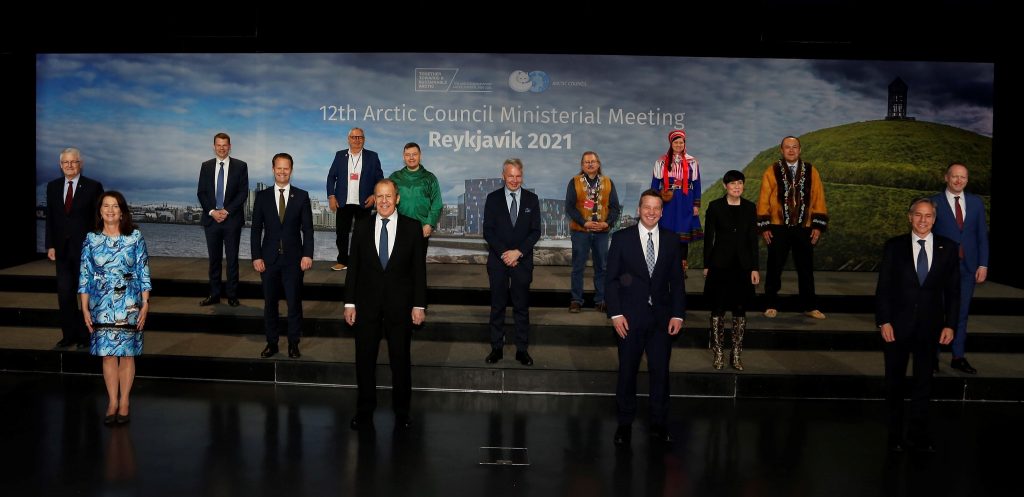
The Arctic Council, an international forum of the eight circumpolar nations, and six Arctic Indigenous groups, will celebrate its 25th anniversary on September 19.
The forum was established in Canada in 1996 with the Ottawa Declaration, as a way to foster cooperation in the North on sustainable development and environmental protection.
Russia currently holds the forum’s rotating, two-year chairmanship and on Thursday, the country’s foreign minister, Sergey Lavrov, praised the Council’s role in allowing the northern countries to work together on common concerns.
“Today, the Arctic represents a unique, but fragile ecosystem, people who live and work there, and a huge potential for common development,” Lavrov said in a news release.
“It is good to see that, despite the complexities in global affairs, interstate relations in high latitudes continue to develop in a constructive manner. I am delighted to note that this engagement is largely possible due to the work of the Arctic Council. A quarter of a century of persistent, meticulous work on building a system of interaction really pays off.”
Year formed: 1996
Arctic Council Members: Canada, Denmark (Greenland), Finland, Iceland, Norway, Sweden, Russia, United States
Permanent Participants: Aleut International Association, Arctic Athabaskan Council, Gwich’in Council International, Inuit Circumpolar Council, Russian Association of Indigenous Peoples of the North, Saami Council
Current Chair: Russia (2021-2023)
Canadian roots
Mary Simon, Canada’s current Governor General, was the first chair of the forum’s Senior Arctic officials.
In a video posted recently on the Arctic Council’s site, Simon reminisced about the challenges establishing the forum.
“The naysayers were all about the fact that there was already and existing arrangement between the eight Arctic states which was the Arctic Environmental Protection Strategy and that we could just add on that,” she said.
( The Arctic Environmental Protection Strategy was a non-binding agreement on environmental protection adopted by the Arctic states in 1991.)
“But the thing was, the Arctic Council initiative came from the highest leaders of the different countries and we felt that if we bring the eight Arctic countries together and address all levels of cooperation it would be a much stronger organization.”
Simon says the Arctic environmental protection strategy was working well at the time but was missing a key element of increasing concern for northerners — development.
“It’s so important to deal with environmental issues, but we also have to deal with development issues,” she said. “Sustainable development became a key part of the creation of the Arctic Council.”
Over its existence, the forum’s work as resulted in three legally binding agreements: the 2011 Agreement on Cooperation on Aeronautical and Maritime Search and Rescue in the Arctic that outlines the Arctic states’ responsibilities in the event of a disaster; the 2013 Agreement on Cooperation on Marine Oil Pollution Preparedness and Response in the Arctic, and the 2017 Agreement on Enhancing International Arctic Scientific Cooperation, a U.S.- Russia initiative to make it easier to move equipment, samples and data across borders in the North and facilitate scientific collaboration and sharing.
In addition, work coming out of the Arctic Council’s working groups – assemblies of experts put together to tackle specific themes or issues affecting the North, has helped inform a range of international climate policy, including the Paris climate accord.
The Arctic Council excludes military and security issues from its work and has been able to maintain close cooperation even during periods of high tension between Russia and the West.
Importance of Indigenous participation
In 2018, a group of international academics nominated the Arctic Council for the Nobel Peace Prize calling it a “model for promoting fraternity between nations,” and said the inclusion of Indigenous Peoples and Indigenous knowledge in the forum was an example for the rest of the world.
Simon says this is part of what makes the council so unique.
“The eight Arctic nations now have a forum where they can address from very critical issues that are facing the Arctic with the involvement of the Indigenous people. [The Indigenous Peoples] have the opportunity to sit with ministers and other dignitaries to talk about these issues and also to find ways of addressing them, so it’s very important to hear the human dimension.”
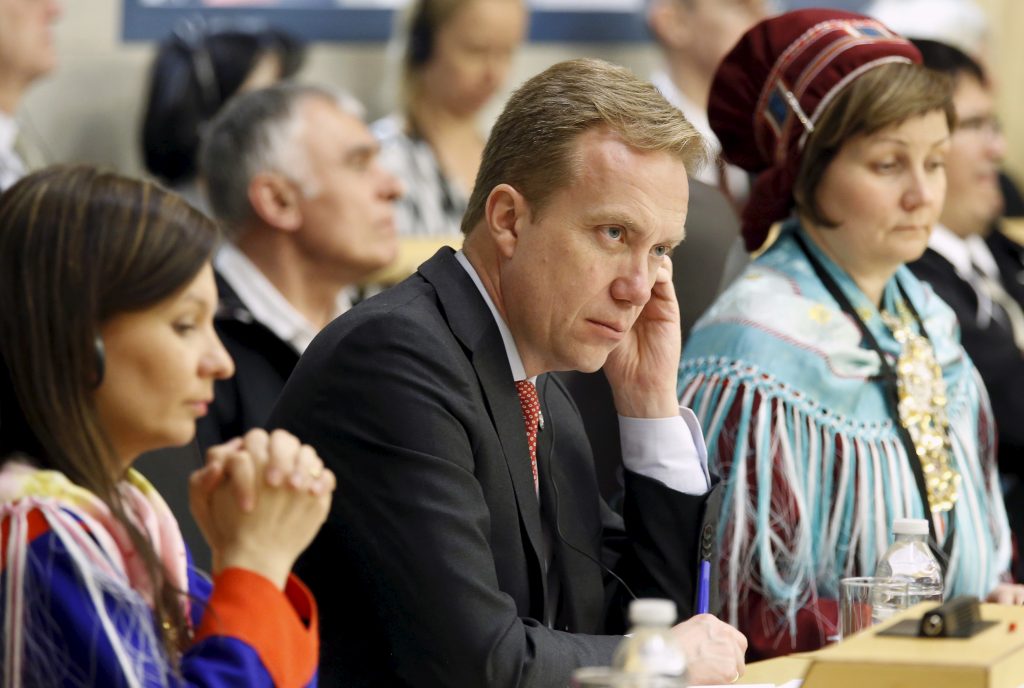
Hjalmar Dahl, President of Inuit Circumpolar Council Greenland and Chair of the Indigenous Peoples Secretariat, says Indigenous knowledge is key to the Council’s work.
“Indigenous Knowledge has been formally recognized by the Arctic Council as important to understanding the Arctic in numerous Ministerial Declarations, including the 1996 Ottawa Declaration on the establishment of the Arctic Council,” he said in a news release.
“The role of Arctic Indigenous Peoples and their Indigenous knowledge is invaluable not only for future development of Arctic societies but also in the conservation and sustainable use of biological resources.”
In addition to the Arctic states and Indigenous groups (known in the forum as Permanent Participants), the Arctic Council also has 38 observers made up of non-Arctic states, NGOs and intergovernmental and interparliamentary organizations.
Observers don’t participate in the forum’s consensus decisions, but contribute to the Arctic Council through its six working groups which tackle areas such as emergency preparedness and Arctic contaminants.
Write to Eilís Quinn at eilis.quinn(at)cbc.ca
Related stories from around the North:
Canada: Canada supports greater voice for Indigenous organizations on Arctic Council, Eye on the Arctic
Finland: Finnish PM stresses importance of Arctic Council for region’s stability amidst climate change, Yle News
Greenland: Greenland’s more prominent role on Arctic Council important signal to int’l community says foreign minister, Eye on the Arctic
Iceland: With U.S. climate drama behind them, can the Arctic Council turn the page in Reykjavik?, Eye on the Arctic
Norway: Norway’s FM confirms participation in upcoming Arctic Council ministerial, The Independent Barents Observer
Russia: Return to form for Arctic Council as Russia assumes leadership from Iceland, Eye on the Arctic
United States: Putin, Biden talk Northern Sea Route, The Independent Barents Observer

